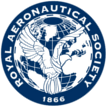Fractional ownership is a well-established concept in the business aviation sector. In it, a customer pays for a ‘share’ (or fraction) of the aircraft’s value – which guarantees them a certain number of hours usage a year. It allows a customer who by themselves could not afford an expensive asset like a bizjet to enjoy the benefits.
With defence budgets squeezed could this or a similar ‘shared’ ownership model enable air forces to procure and field expensive assets like a HALE (high altitude – long endurance) UAV? A major aerospace and defence manufacturer thinks so and at a exclusive briefing this week with aviation and defence journalists revealed that the idea of the RAF ‘sharing’ a Global Hawk UAV with other government departments or agencies has already been raised with informal discussions with UK MoD.
With the parlous state of UK finances this idea has merits. An asset like Global Hawk, could not only be used solely on purely military tasks, but is also flexible enough with its SAR/GMTI radar for surveying possible flooding areas, fisheries protection, pollution monitoring or even environmental missions (an idea that Canada is already reported to be interested in). Indeed, in the first eight hours after the Haiti earthquake a Global Hawk UAV had surveyed the entire island and reported back the scale of devastation – giving it a vital humanitarian role. One other mission might conceivably involve a LIDAR (laser radar) sensor to allow the UAV to perform volcanic ash monitoring should the Icelandic volcano close European airspace again.
With these extra missions added to the Global Hawk’s already impressive repertoire, it could mean that the UK MoD could help spread the cost of an expensive strategic UAV system and tap into other departments funding, such as DFID (Department for International Development), DEFRA (Department for Environment, Food and Rural Affairs) and even with climate change as a security issue on the agenda the DECC (Department of Energy and Climate Change). By helping to fund such a system, these UK departments and agencies would get access to a land use, Earth monitoring and high altitude scientific platform that they too, would not be able to afford by themselves.
Defence and aerospace companies also note that ‘power by the hour’ or ‘surveillance by the hour’ outsourcing agreements with industry, could also help the MoD’s scarce pounds go farther. For non-armed UAVs with no lethal role, it could be that using private contractors employing sponsored reserves may be a far better use of resources, than paying a Typhoon pilot with £7m worth of training to sit an air-conditioned cabin in Nevada.
Far-fetched? Possibly, but the crisis in funding now means that even radical ideas like getting other UK departments and agencies to chip in for strategic assets are now on the table. So could it be that any future UK-operated Global Hawk UAV might have, as well as an RAF roundel, a logo that says ‘DEFRA - working in partnership with the RAF’…?






